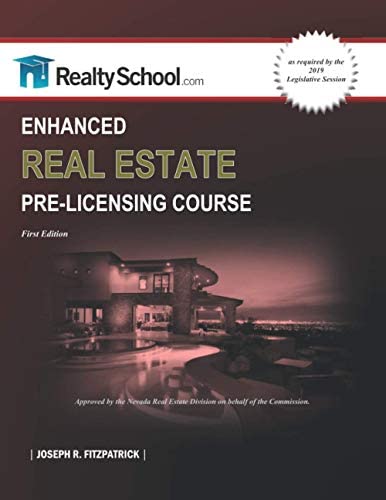
Stocks and realty are both excellent investment vehicles. However, each have their own set of benefits and disadvantages. Here are some of the key differences between them: Liquidity. Risks. Location. And Profits. If you are looking for a long-term passive income stream, investing in real estate might be a better choice. Real estate not only offers the opportunity for significant appreciation but also provides passive income. Stocks, on the other hand, are subject to market, economic, and inflation risks. Although stocks can be bought or sold quickly, they do not require large cash investments.
Profits
There are many benefits to real estate investments. For starters, real estate can create cash flow. Cash flow is money left over after expenses have been paid. Renting income can help offset expenses and keep money in your pockets. The longer you own a property, the stronger your cash flow will be. Tax breaks and deductions available for real property can be taken advantage of. These tax breaks can include deducting reasonable expenses related to ownership or operation.
Investing in real property offers the flexibility many investors require. You can gradually build your portfolio and rent the income to supplement your income. You can also make fix-and flop profits your main source for income. Real estate also gives you freedom and flexibility to manage your property around your schedule. You are your boss. This field is not governed by anyone else. There are no salary restrictions.

Risks
It is important to know the differences between stocks and real estate investing. Real estate is a much more stable investment than stocks. Real estate offers a much lower risk of loss as your land serves as collateral. On the other hand, stocks are more liquid, so you can cash out at any time. Dividends are another way stocks can earn income. However, investors need to be aware of volatility in stock prices as this can affect emotional decisions.
In addition to being higher risk, you will have to wait for your return to see a positive impact. Stocks return an average 10% per year while real estate returns between three and four percent. You will still see a 20% annual return if you have at least 20% equity in the property. This is far more than what you would get from stocks. Additionally, it is not easy to find properties that are of high value and then make a profit by selling them for less than the price you paid. A tax penalty could be imposed if your property is sold in a shorter time period than normal. This is because the return on real estate markets is usually higher.
Liquidity
Liquidity describes the ease with which investors can convert their investments into cash. Stocks offer more liquidity than real-estate investments due to their availability during market hours. Although it can take several days to sell a stock position, investors can still get their money whenever they wish. Real estate investments, however, are not liquid and may take years to appreciate.
Another benefit to investing in real estate is that the income generated from it is more than capital gains. This makes it easier to do so. The income component also automatically increases with inflation. This allows investors to spend their real-estate profits faster. Real estate investing has another advantage: it is less volatile. This means that withdrawals from real estate are more secure and less susceptible to short-term volatility. You can find the strategy that best suits your needs, regardless of what you prefer.

Location
Direct investing in real estate is not for everyone. You should still consider real estate if you wish to have a balanced portfolio. The stock market is easy to get involved with and maneuver. Investing in real estate is also less risky than stock index funds. Here are some tips for investors who are considering real estate investments.
FAQ
What are the three most important things to consider when purchasing a house
When buying any type or home, the three most important factors are price, location, and size. The location refers to the place you would like to live. Price is the price you're willing pay for the property. Size refers the area you need.
How do I repair my roof
Roofs can burst due to weather, age, wear and neglect. Roofers can assist with minor repairs or replacements. For more information, please contact us.
How much does it take to replace windows?
Replacing windows costs between $1,500-$3,000 per window. The exact size, style, brand, and cost of all windows replacement will vary depending on what you choose.
What are the cons of a fixed-rate mortgage
Fixed-rate loans are more expensive than adjustable-rate mortgages because they have higher initial costs. Also, if you decide to sell your home before the end of the term, you may face a steep loss due to the difference between the sale price and the outstanding balance.
Is it better for me to rent or buy?
Renting is usually cheaper than buying a house. But, it's important to understand that you'll have to pay for additional expenses like utilities, repairs, and maintenance. You also have the advantage of owning a home. You will be able to have greater control over your life.
How can I calculate my interest rate
Market conditions impact the rates of interest. In the last week, the average interest rate was 4.39%. Multiply the length of the loan by the interest rate to calculate the interest rate. If you finance $200,000 for 20 years at 5% annually, your interest rate would be 0.05 x 20 1.1%. This equals ten basis point.
Statistics
- This means that all of your housing-related expenses each month do not exceed 43% of your monthly income. (fortunebuilders.com)
- This seems to be a more popular trend as the U.S. Census Bureau reports the homeownership rate was around 65% last year. (fortunebuilders.com)
- Private mortgage insurance may be required for conventional loans when the borrower puts less than 20% down.4 FHA loans are mortgage loans issued by private lenders and backed by the federal government. (investopedia.com)
- 10 years ago, homeownership was nearly 70%. (fortunebuilders.com)
- Over the past year, mortgage rates have hovered between 3.9 and 4.5 percent—a less significant increase. (fortunebuilders.com)
External Links
How To
How to become a broker of real estate
To become a real estate agent, the first step is to take an introductory class. Here you will learn everything about the industry.
The next thing you need to do is pass a qualifying exam that tests your knowledge of the subject matter. This means that you will need to study at least 2 hours per week for 3 months.
Once this is complete, you are ready to take the final exam. To be a licensed real estate agent, you must achieve a minimum score of 80%.
All these exams must be passed before you can become a licensed real estate agent.